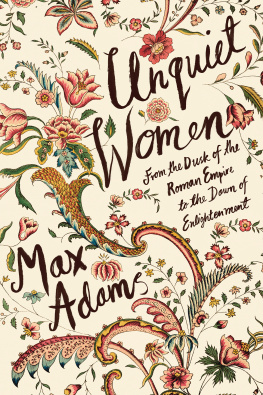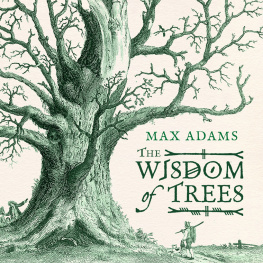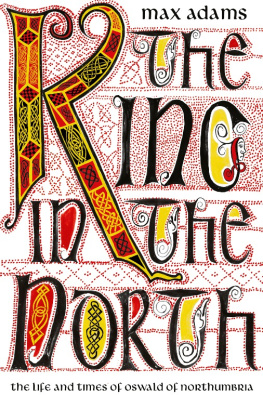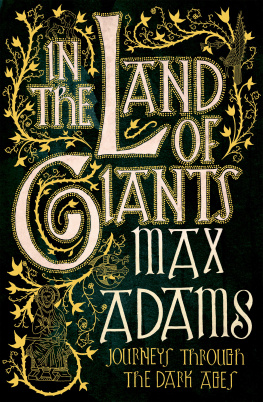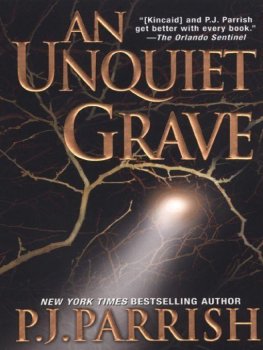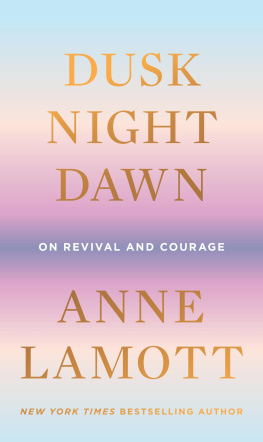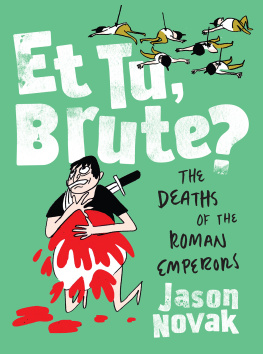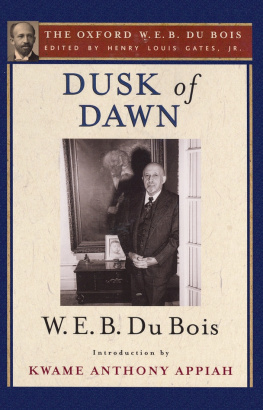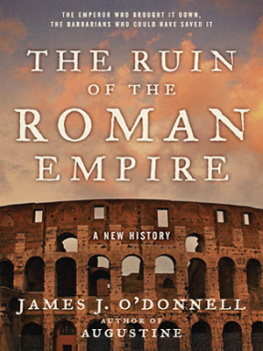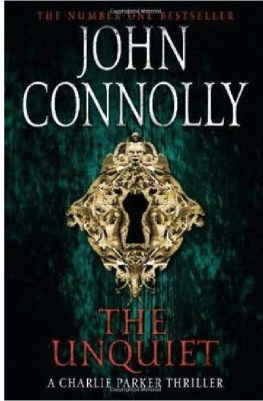Max Adams - Unquiet Women: From the Dusk of the Roman Empire to the Dawn of the Enlightenment
Here you can read online Max Adams - Unquiet Women: From the Dusk of the Roman Empire to the Dawn of the Enlightenment full text of the book (entire story) in english for free. Download pdf and epub, get meaning, cover and reviews about this ebook. year: 2018, publisher: Head of Zeus, genre: Religion. Description of the work, (preface) as well as reviews are available. Best literature library LitArk.com created for fans of good reading and offers a wide selection of genres:
Romance novel
Science fiction
Adventure
Detective
Science
History
Home and family
Prose
Art
Politics
Computer
Non-fiction
Religion
Business
Children
Humor
Choose a favorite category and find really read worthwhile books. Enjoy immersion in the world of imagination, feel the emotions of the characters or learn something new for yourself, make an fascinating discovery.
Unquiet Women: From the Dusk of the Roman Empire to the Dawn of the Enlightenment: summary, description and annotation
We offer to read an annotation, description, summary or preface (depends on what the author of the book "Unquiet Women: From the Dusk of the Roman Empire to the Dawn of the Enlightenment" wrote himself). If you haven't found the necessary information about the book — write in the comments, we will try to find it.
Unquiet Women: From the Dusk of the Roman Empire to the Dawn of the Enlightenment — read online for free the complete book (whole text) full work
Below is the text of the book, divided by pages. System saving the place of the last page read, allows you to conveniently read the book "Unquiet Women: From the Dusk of the Roman Empire to the Dawn of the Enlightenment" online for free, without having to search again every time where you left off. Put a bookmark, and you can go to the page where you finished reading at any time.
Font size:
Interval:
Bookmark:

AN APOLLO BOOK
www.headofzeus.com
 |
Unquiet Women is an exquisitely crafted patchwork of the forgotten lives of some of the most remarkable women in history.
Wynfld was an Anglo-Saxon noblewoman who owned male slaves and badger-skin gowns; Egeria a Gaulish nun who toured the Holy Land as the Roman Empire was collapsing; Gudrid an Icelandic explorer and the first woman to give birth to a European child on American soil; Mary Astell a philosopher who out-thought John Locke.
In this exploration of the lives of women living between the last days of Rome and the Enlightenment, Max Adams triumphantly overturns the idea that women of this period were either queens, nuns or invisible. A kaleidoscopic study of womens creativity, intellect and influence, Unquiet Women brings to life the experiences of women whose stories are all too rarely told. Thanks to its authors rigorous work of rescue and recovery, their voices can be heard across the centuries still passionate and still strong.
For my sisters
In memory of Constance Alexandra Crofts
Since the men being the Historians, they seldom condescend to record the great and good Actions of Women; and when they take notice of them, tis with this wise Remark, That such women acted above their sex. By which one must suppose they woud have their Readers understand, That they were not Women who did those Great Actions, but that they were Men in Petticoats!
M ARY A STELL , T HE C HRISTIAN R ELIGION , 1705
From all these sources I wove the whole fabric of my truthful history.
A NNA C OMNENA , A LEXIAD VII
My grandmother, Constance Alexandra Corinna Johnson, was born in the Northamptonshire village of Moreton Pinkney in 1902. The Johnsons were joiners and undertakers, but her mother had been in service to a lady of means hence the grandiose middle names. Constance married my grandfather, Harry Charles Crofts, after his return from the First World War. He had survived Mons and long years as a POW in the mines of Silesia. His family were agricultural workers from the village of Crick, famous for its very long canal tunnel. For the rest of his working life, Harry was a porter eventually head porter at the Hospital of St Cross in Rugby, close to its public school. Harry and Connie were given a cottage in the hospital grounds in which to raise a family and Connie ran the hospital laundry. She bore fourteen children.
A son, Walter, died soon after birth. Two girls, Kathleen and Little Anne, were also casualties of the sorts of fates common to large families before modern emergency care and advanced antibiotics: deaths by scalding, when a pan fell from a stove, and a rare throat infection. Seven daughters and four sons survived to adulthood. The boys made careers in the military, in the building trade, in farming and business. Some of the girls were put out to service when their school education ended at the age of fourteen; three of them received formal training as nurses, having served inevitable apprenticeships on the wards and in the mortuary of St Cross. The older girls raised their younger siblings. Without exception they were articulate, capable and striking in looks. They suffered the common childhood diseases of their era: diphtheria, measles and scarlet fever. They scrumped apples and flirted with the posh boys at the big school. They dreamed of being Greta Garbo or Vivien Leigh or of finding work in one of Londons fine department stores. During the Blitz of November 1940, they watched the skies turn red over Coventry. They learned to close their blackout curtains or else; to go without luxuries; to count every penny.
At the age of fifteen or sixteen, my mother, Thelma, was sent to skivvy for the wife of a master at Rugby School. In 1945 he became headmaster at Berkhamsted Graham Greenes alma mater; my mother, aged seventeen, went unwillingly with them and sent her wages home. It was an unhappy servitude and it ended disastrously when my mother and Berkhamsteds head boy, Warwick Adams, were found to be courting. My father was sent down.
Thelma and her sisters married well; raised children; were housewives. They were also artists, seamstresses, nurses, florists, letter-writers, mentors, home-makers and decorators; aunts, mothers-in-law, sisters and daughters. They were curious and aspiring. Their children were the first generation in the family to go to university. My grandmother, in later years, maintained her skills as a professional laundress and managed to salt away the bulk of her wages, so that when Harry retired in 1960 she was able to purchase six adjacent, derelict, one-up one-down cottages in Harrys home village, Crick, for a hundred pounds each. They knocked them together and renovated them to create a home where children and grandchildren could gather: a Boxing Day houseful numbered fifty. Harry died in 1974; Connie survived him by eighteen years and died at the age of ninety.
My grandmother, my aunts and my mother, who raised three children single-handed, may or may not have been typical of their generation or of those that went before. They seemed, and seem, remarkable both as individuals and as a family.
There is a common thread of restlessness, a refusal to accept fate passively, in the lives of the women in my family and in those of the small gathering of women whose stories are told in this book. At all times, and in the face of oppression, ignorance and the casual hand of fate, women have found ways and means to tell their stories and to negotiate access to power not, in most cases, the supreme political power of emperors, kings and popes, nor, for the most part, the power wielded by force of arms or professional status; but in the spheres that matter to most people most of the time: in family, home, community, education and in the broader access to culture that so many crave. This unquiet spirit of curiosity and creativity, of passion and determination, rings with increasing clarity from the dusk of the Roman empire, through twelve or so centuries up to the dawning of the age of Enlightenment when, it seems to me, womens history starts to follow a new trajectory.
I have often been taxed by students with the lack of womens stories in history. It is not so much that womens lives are absent from either the historical or archaeological record; more that they are neglected, or that they dont fit neatly into the grand narratives mens stories, if you will of sweeping change. During the research for many books I have collected a lot of material concerning womens history, archaeology and anthropology. It is time for at least some of this material to see the light of day. But this is a personal collection; there are many, many more women whose stories might be included. I have taken the slightly indulgent view that the lives of those women whom I find most interesting will also interest readers. These are not, generally, the queens and femmes fatales or heroines of popular culture, nor those who have necessarily achieved power or greatness in the ordinary sense. Some of the women in these pages have come down to us with no name. Sometimes I can do no more than infer their existence from fragments of artefacts or whispers off-stage. But I do not underestimate the importance of all those lives whose faint echoes must speak for the millions of women about whom we know little or nothing. If there is a common thread to the lives included here, it is a restlessness and energy an unquietness that confronts or brushes aside expectation and oppression.
Font size:
Interval:
Bookmark:
Similar books «Unquiet Women: From the Dusk of the Roman Empire to the Dawn of the Enlightenment»
Look at similar books to Unquiet Women: From the Dusk of the Roman Empire to the Dawn of the Enlightenment. We have selected literature similar in name and meaning in the hope of providing readers with more options to find new, interesting, not yet read works.
Discussion, reviews of the book Unquiet Women: From the Dusk of the Roman Empire to the Dawn of the Enlightenment and just readers' own opinions. Leave your comments, write what you think about the work, its meaning or the main characters. Specify what exactly you liked and what you didn't like, and why you think so.

